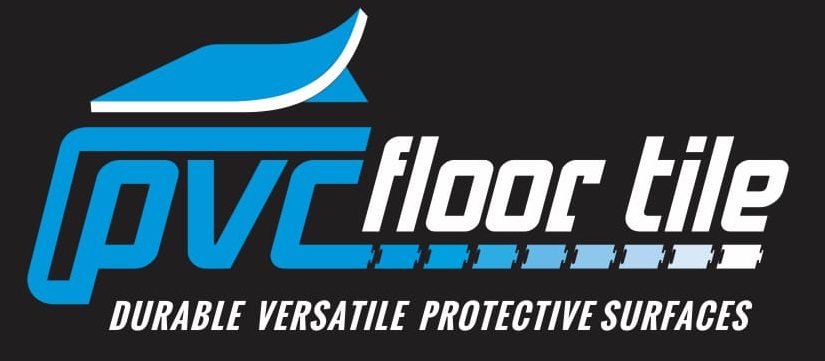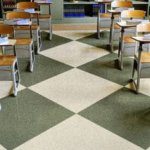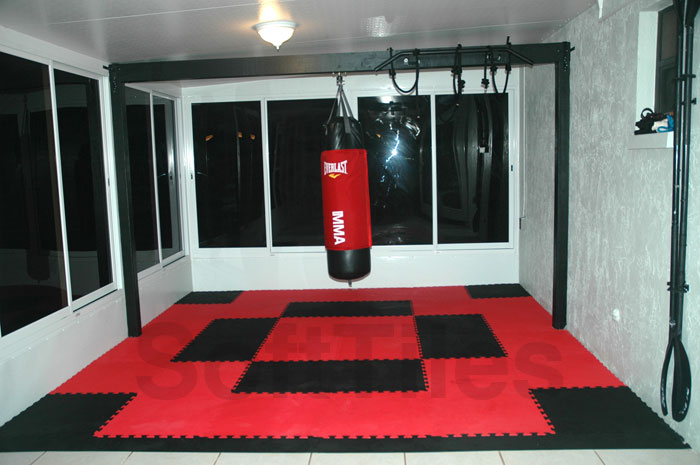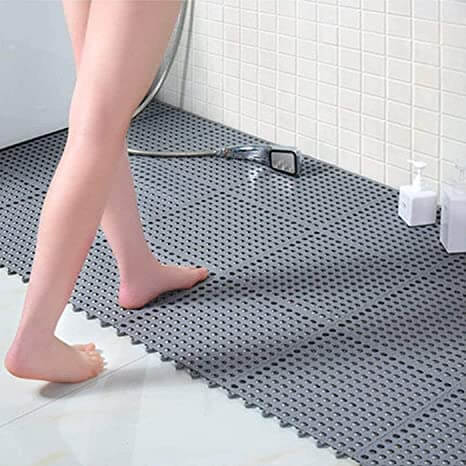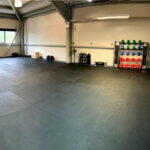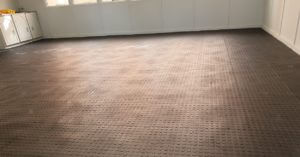
Rubber flooring material in naturally low water absorbent, which makes it an ideal flooring for areas prone to water spillages, floods and for wetlands. There are rubber tiles suitable for outdoor and have a very good drainage system.
However, it depends on the type of rubber flooring some rubber floorings are porous whilst other types are non-porous.
- Rubber tiles made of tyres are very porous can absorb water and get wet,
- This type of rubber flooring is ideal for outdoor flooring like in the playgrounds, though they are porous they have a very good drainage system and the water absorbed can easily flow out.
- This type of flooring is always suitable for door / entrance mats, kitchens, bathrooms, swimming pool areas and car washes as they do not keep water on the surface but the water is channeled through the flooring drainage systems.
- Floorings with drainage system are ideal and safe as they do not keep the floor wet and risk injuries from slips.
- Rubber tiles made from PVC floor tile cannot get wet, they are non-porous
- The PVC floor tiles only absorb water through their joints, however the joints can be sealed with pvcocity adhesive. The adhesive can sealed the joints completely they become just like the porcelain or ceramic tiles
- PVC floor tiles can be installed in areas where the floors are not prone to water spillages as they do not have a drainage system any water spills should be immediately attended to because rubber flooring with water laying around is very slippery and dangerous especial the one with smooth and untextured surface.
- PVC floor tiles are perfect for indoor flooring such as homes, offices classrooms and hallways
- PVC floors are waterproof, porous and durable flooring option.
- Some mats have an undelaying rubber material with carpet like material on top
- The top layer is highly porous and the underlayment non-porous
- These mats are very porous and have absolutely no drainage mechanism on them once they are soaked one needs to hang them to help drain the water from them.
- This mats are only ideal for indoors uses and can only be spread outside if it is dry and is not prone to any water spillages.
- However, for an area prone to accumulating moisture from the ground they are ideal as the underlayment is made from rubber and is water proof and non-porous
There are other types of flooring besides rubber flooring that do not get wet and are high non-porous as well but are not durable and resilient as the rubber flooring which makes them an option for areas with minimum impact and no low traffic environment.
- Ceramic and porcelain tiles are both and waterproof and non-porous and the joints sealed with tiles adhesive even if the subfloors are wet the moisture cannot find its way to the top of the tiles. However their surfaces are very slippery if they are exposed to any liquids, they need to be cleaned as soon as possible. Their other downside is that they are not resilient and durable at all they quickly break from any pressures.
- Wooden floors depends with the type of wood, some wood material like hard wood are water resistant and do not get wet but this type of wood is very expensive and it prices itself out of the budgets of many people. This type of wood is even common in gyms and offices as it is very durable and resilient.
- Then there is the other type of wood that does not want to be continuously exposed to water as it is not very resilient and can absorb water.
When looking for a water proof and non-porous flooring option rubber flooring is the most perfect flooring option, with rubber made from recycled tyres for outdoor flooring and PVC floor tiles for indoor floorings.
For further and more detailed character of rubber floor tiles, do not hesitate to get in touch with us for professional advise we are always here to serve you.
